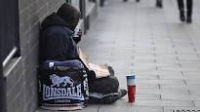
Increasing numbers of local authorities are defying government guidance and criminalizing people for being homeless, a Guardian investigation says.
Growing numbers of vulnerable homeless people are being fined, given criminal convictions and even imprisoned for begging and rough sleeping, the Guardian can reveal.
ABC Note: Public Spaces Protection Orders (PSPOs)
A Public Spaces Protection Order (PSPO) aims to prevent particular things that are harming the quality of life of people in the local community.
Public Space Protection Orders (PSPO) are made under powers set down in the Anti-Social Behaviour, Crime and Policing Act 2014.
Protection Orders allow us to deal with problems in public spaces in the Borough that have a detrimental effect on the quality of life of the local community, by imposing conditions and requirements on the use of that area for everyone using it.
Police or accredited Council Officers can issue Fixed Penalty Notices of £100 to, or may prosecute, anyone who does something that may cause the harm that an order is intended to prevent.
A Criminal Behaviour Order (CBO) is an order which is available on conviction for any criminal offence by any criminal court, introduced by the Anti-social Behaviour, Crime and Policing Act 2014 (ABCPA 2014, s.22) with effect from 20 October 2014. It replaces the former powers of the court to make orders such as an ASBO or a drinking banning order on conviction.
A Criminal Behavior Order (CBO)
A CBO is an order designed to tackle the most serious and persistent anti-social individuals where their behaviour has brought them before a criminal court. The anti-social behaviour to be addressed does not need to be connected to the criminal behaviour, or activity which led to the conviction. However, if there is no link the court will need to reflect on the reasons for making the order.
A CBO can deal with a wide range of anti-social behaviours following the offender’s conviction, for example threatening violence against others in the community, or persistently being drunk and aggressive in public. However, the order should not be designed to stop reasonable, trivial or benign behaviours that have not caused, or are not likely to cause anti-social behaviour.
Any application will be made by the prosecution (ABCPA 2014, s22(7)). The majority of applications will therefore be made by the CPS, either at their own initiative, or at the request of the police. However, it may also be applied for by local councils, providing they are the prosecuting authority in the case. The court cannot make a CBO of its own volition.
A CBO may only be made against an offender when they have been sentenced to at least a conditional discharge for the substantive offence (ABCPA 2014, s22(6)). A CBO cannot be made where the offender has been given an absolute discharge. The court may only make a CBO if it is satisfied that two conditions are met (ABCPA 2014, s22(2)):
Leave a comment
Make sure you enter all the required information, indicated by an asterisk (*). HTML code is not allowed.
Join
FREE
Here










